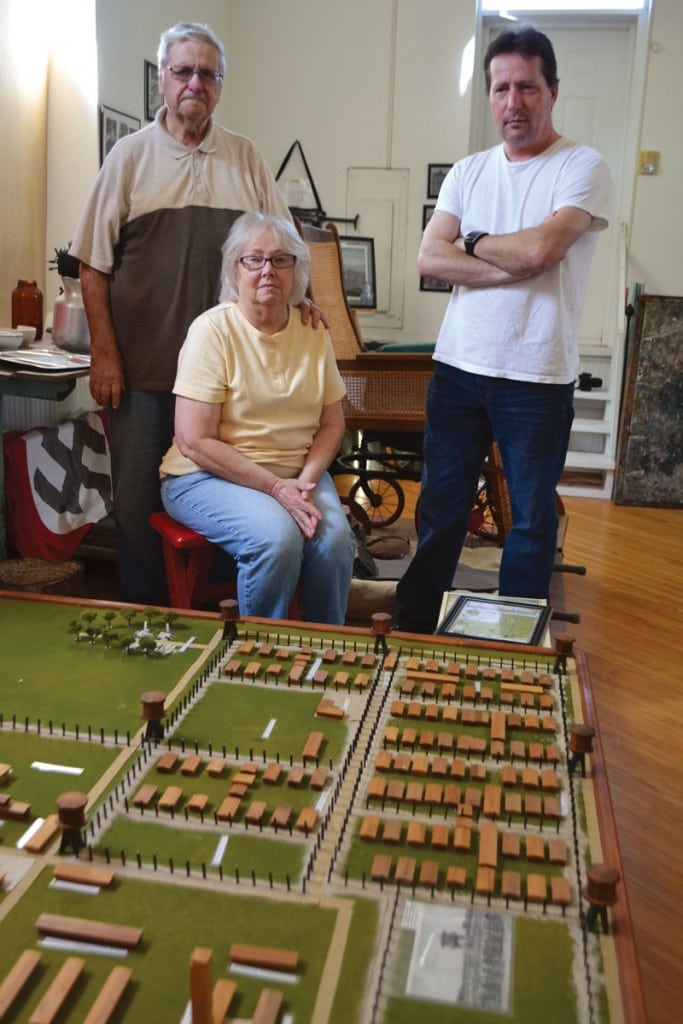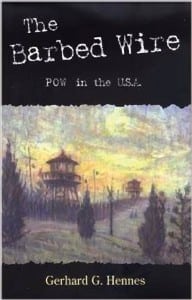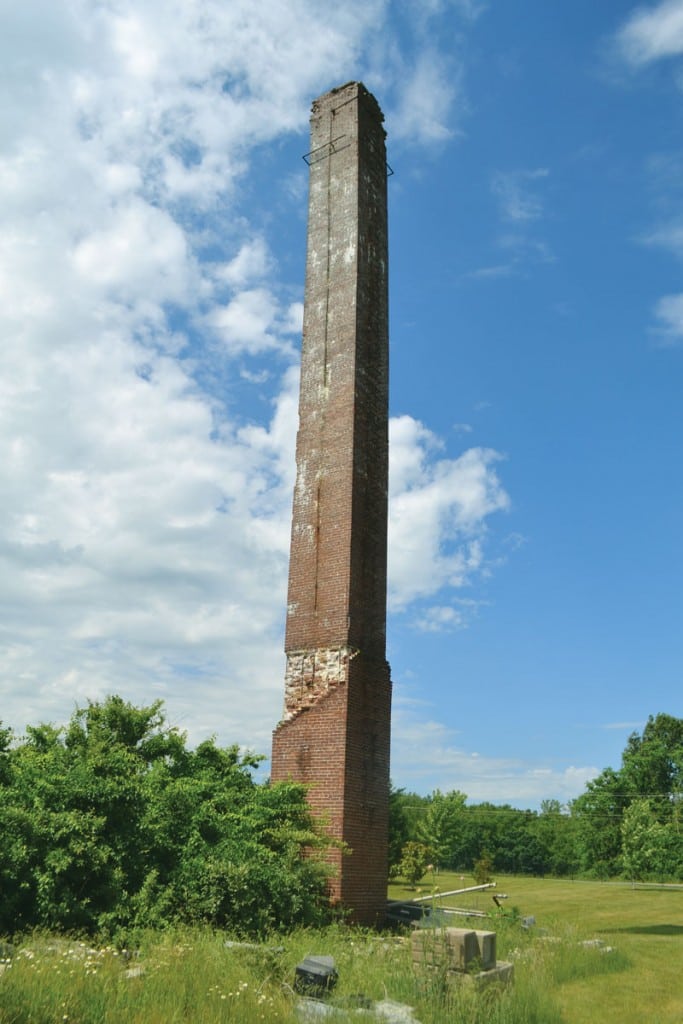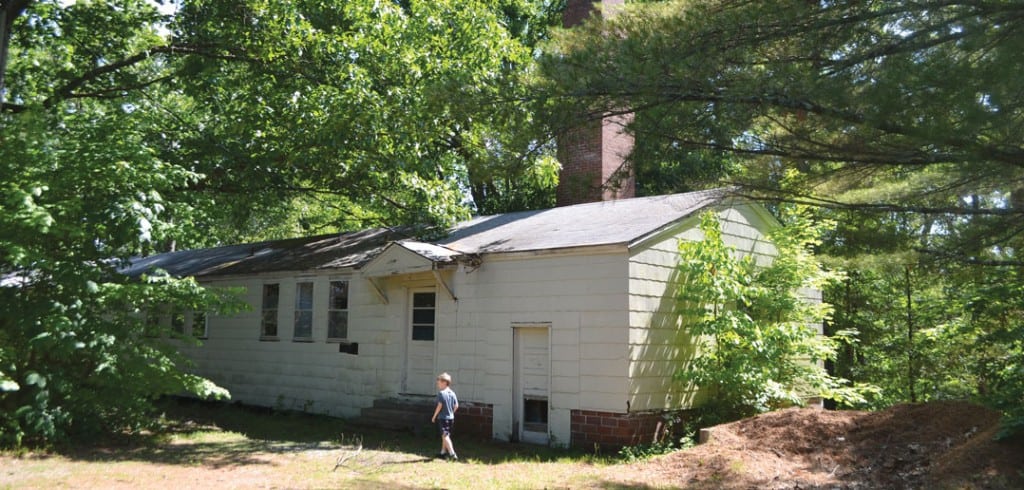Most people do not know that there were prisoner-of-war camps in Tennessee during World War II. They were at Camp Forrest, near Tullahoma; Camp Campbell, near Clarksville; Camp Tyson, in Henry County; and Camp Crossville, in Cumberland County.
Best I can tell, there isn’t much left of any of these camps, except Crossville. The same land that used to be the Crossville POW camp is now the Clyde York 4-H Center. Thousands of kids go there every year to learn about archery, swimming and teamwork. I suspect most of them don’t know that the long, white building near the entrance used to be part of a prisoner-of-war hospital.

Since there were POW camps all over the United States and lots of military paperwork to document their operation, there is quite a bit of information about them in books and on the Internet. I didn’t find this chapter of Tennessee’s history all that interesting, however, until I read about Gerhard Hennes.
Hennes was a German officer who was captured in North Africa on May 13, 1943. Five months later, after short stays in a dozen different holding facilities, he entered the gates of Camp Crossville. He was imprisoned there for two years.
After World War II, Hennes would become an American citizen and in 2004 published “The Barbed Wire: POW in the USA.” In it he gives a detailed description of life at Camp Crossville.
To summarize, Hennes and his fellow prisoners were treated better than any prisoners of war I’ve ever heard of. They were given new uniforms, they were not interrogated and they were mostly left to the authority of their own German officers.
The best part of Camp Crossville, Hennes claims, was the food. “There were three square meals a day,” he wrote. “Breakfast included long-forgotten or newly cherished things like scrambled eggs, crisp bacon, fresh orange or V8 juice; all kinds of cereal; and hot cakes soaked in maple syrup.”
They were even paid. Since he was a lieutenant, Hennes was given $20 per month. The German prisoners used this money to buy beer, cigarettes, books and just about whatever they chose to order from the Sears catalog. They passed the time taking classes taught by other prisoners, participating in tennis and soccer leagues they organized, playing cards and drinking beer.

“Many evenings were filled with the noise of animated talk, of fists banging cards on the table and of singing, laughing and bawling,” he writes.
In what must have been one of the bizarre coincidences of World War II, Hennes was a prisoner at the same camp as his father, Friedrich Hennes. The elder Hennes was captured by Americans in Europe in the fall of 1944. Sent to a camp in Colorado, he asked for and was granted a transfer to Crossville. Too old to participate in the company sports leagues, Friedrich Hennes watched his son play. “Father came to be one of my most loyal — and least knowledgeable — supporters,” Hennes wrote. “He would not miss a soccer or tennis match.”
I was also surprised to learn from Hennes’ book and from Sean Boring, curator at the Military Memorial Museum in Crossville, that prisoners were routinely allowed to leave Camp Crossville. “With so many young men away, there was a big manpower shortage in the area,” Boring said. “There were German POWs working in factories and on farms, helping farmers bring in the crops.”
Boring and his parents have done much to preserve Cumberland County’s military history, which includes the prisoner-of-war camp. Within the small museum in Crossville, one can see weapons, uniforms, photographs, letters and other objects from the Civil War up through the present.
Among the more interesting objects I found in my recent visit were a bazooka reportedly used in the movie “Saving Private Ryan,” a Civil War tombstone rescued from a salvage heap and an Army map used in Vietnam.
A few years ago, local volunteers even created a large wooden model of Camp Crossville based on several sketches and maps of the facility. It is a popular attraction at the museum.
As I read Hennes’ account of being a POW, I began to wonder if there would be a turning point in his experience. It came in the spring of 1945. After Germany’s surrender, all the POWs were herded into a Crossville movie theater where they saw a film containing footage from the liberation of the Nazi-run concentration camps.

“We saw the emaciated bodies and empty eyes of the survivors,” he wrote. “We saw the piles of naked bodies, starved to death. We saw the mass graves. We saw the ovens where tens of thousands had been cremated. We saw and stared in silence, struggling but unable to believe what we Germans had done to Jews, gypsies, prisoners of war and many others deemed inferior or expendable.
“None of us in Crossville will ever forget that documentary.”
Hennes says he and his fellow soldiers and officers were shocked to learn about the Holocaust. He said that, for him, seeing that film was “the day when I turned in one profound transformation from being a hero to being a villain.”
It was also the day the treatment of German prisoners of war changed at Crossville — and at probably every prisoner-of-war camp in the United States. The quality and amount of food were reduced, and the treatment of the prisoners by the guards was changed. Some of this appears to have been a deliberate policy change on the part of the U.S. military. It may have also reflected the attitude of the prison guards, who were no doubt also moved by the images of the mass genocide.
Shortly after Thanksgiving 1945, Hennes and the other prisoners of war were sent by train to New York, then by ship to Europe. Hennes then spent two more months in a POW camp in Attichy, in France. There, the food was scarce, the conditions were overcrowded and treatment was rough.
Life as a POW ended for Hennes on Jan. 30, 1946. The war behind him, he moved back to the town where he grew up in Germany. He emigrated to the U.S. in 1953 and became a citizen five years later.
Hennes later became an administrator for the New Brunswick Theological Seminary in New Jersey and spent many years providing disaster relief through an international organization called Church World Service.
“For most of my life, I have been an American citizen,” says Hennes, who is now 92 and living in Crossville. “I am very proud of that and thankful for the opportunities the United States gave me.”




